5 Misconceptions About Core Vocabulary in AAC
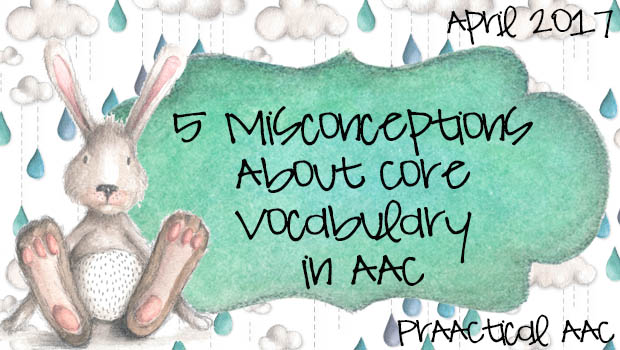
When we first started writing about core vocabulary, it was largely due to the fact that most SGDs, AAC apps, and communication boards/ books had two big deficits. At the time, most of them lacked the words needed to function throughout the day and/or didn’t have the kinds of words that allow for progression of syntactic skills. Now things look very different. Over the years, the pendulum has moved quite dramatically and now core vocabulary permeates AAC systems that are considered to be ‘robust.’
That’s a lot of movement in a short period of time.
When big changes happen rapidly, it stands to reason that there will be some cracks that open up. Misunderstandings, misinterpretations, misconceptions.
Here are some of the ones we’ve observed in the recent past.
- Core words are all that are needed in an AAC system. (Not in most cases. We all want to talk about the specific things in our lives – people, places, things. We can survive without those specific words, but why would we want to?!)
- It’s a developmental word list. (Not at all. Core word lists are frequency lists. They tell how often people in a certain age group used different words. The lists don’t tell us anything about which words were learned first by this group.)
- People need to be able to match pictures or receptively identify them in order to learn core words. (Not if there is good system design that honors the motor plan.)
- They’re the first words that should be taught to people with complex communication needs. (Not necessarily. For some learners, the initial path to successful communication is paved with the words representing specific things, people, and activities that they love.)
- They’re too abstract for learners with intellectual disabilities. (Nope. Not supported by the evidence.)
Core vocabulary plays a critical role for most people with complex communication needs, but it isn’t everything.
Have you experienced these kinds of misconceptions in your AAC world? We’d love to hear how you dealt with them.
Filed under: Featured Posts, PrAACtical Thinking
Tagged With: core vocabulary, misconception, myth
This post was written by Carole Zangari

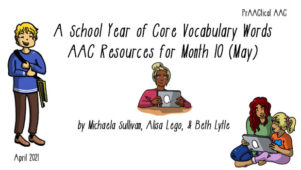
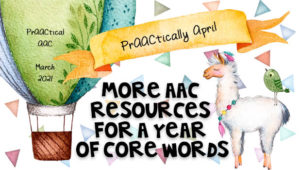
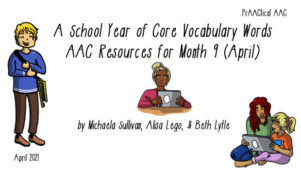
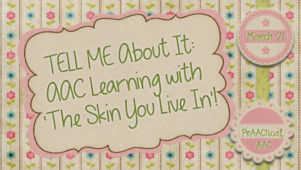
4 Comments
Thanks for this article! We started years ago before core words were discussed much. So we put together a set of words that my son could use to talk about wants & needs — because he had wants and needs! When the core push came along as if it was ALL he needed I was baffled – and felt I was somehow doing it “wrong”. For the life of me I couldn’t figure out how to accomplish all core all the time without seriously limiting his life. He can’t ask for milk? A toy? A movie? To ride on a city bus???
So I just kept what we had until I could master this “core” business. Now the whole picture is much clearer and we are in a good place to make language progress.
That’s great to hear, Debbie! Keep me posted on how things are going as you keep pushing his language forward. He’s so lucky to have you in his court!!
Helpful. How do I subscribe to the blog.
Reg, I added you to the list but there is also a button at the bottom of the home page (on the right side). Thanks for stopping by!